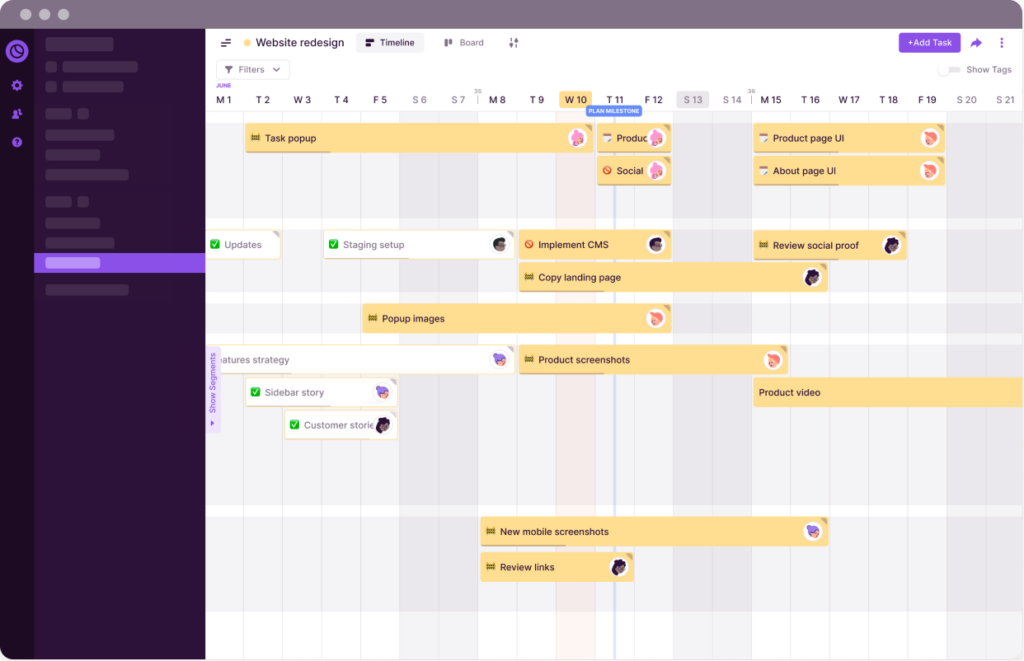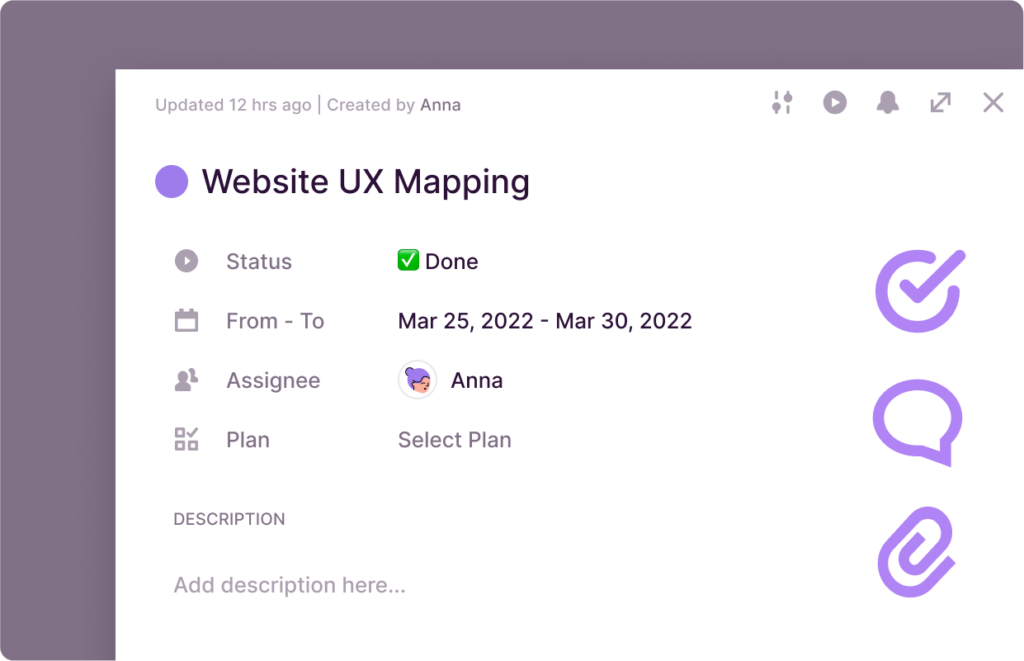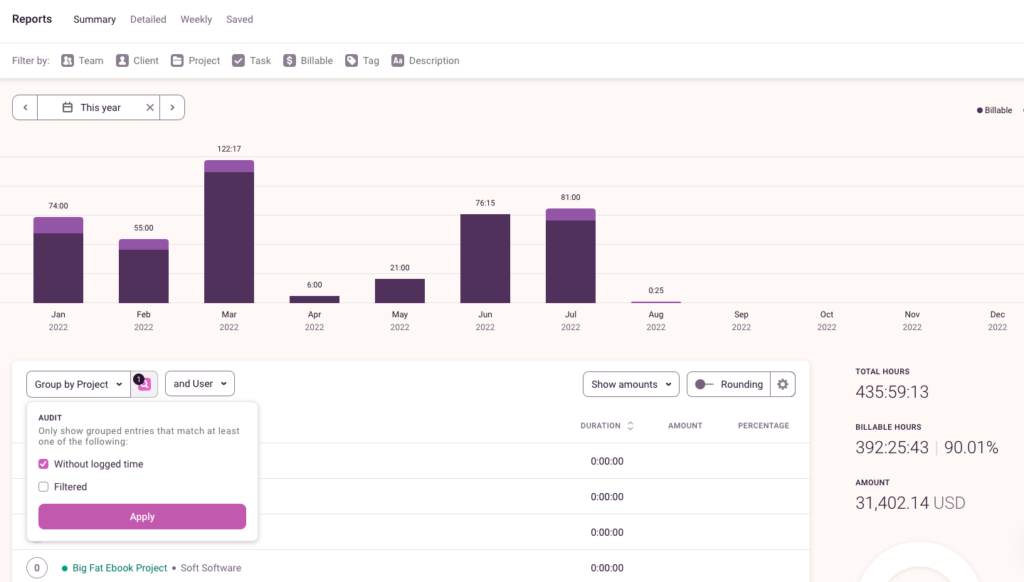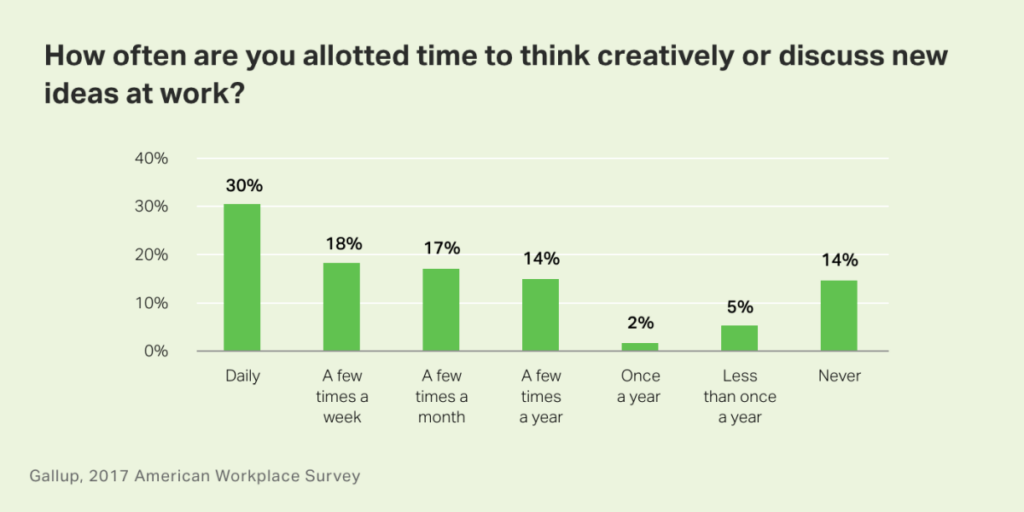Creative project management practices are unlike those in traditional industries.
Construction, industrial, and even software development project management practices and processes have matured over the years. But with more creative startups launching than ever before, it’s time to keep aside the PMI handbooks and think a little outside the box.
In this article, you’ll learn about:
- What creative project management is
- How to manage creative projects
- And how to become a better creative project manager
Off we go.
What is creative project management?
Creative project management is a set of processes that help plan, track, and deliver creative projects. It covers all aspects of a project, from idea to design to development to delivery.
Marketing and design agencies is where creative project management is used most often. For example, you can apply creative project management workflows to:
- Blog content strategy and execution
- Social media marketing projects
- Video Marketing
- Ad campaign management
- Web design, and more
In-house managers and leaders too can apply these processes to their internal creative projects.
Basically, any project that involves creative people creating or designing stuff needs creative project management. But how is it different from traditional project management?
Traditional vs. creative project management
What is it really that makes creative projects different from traditional ones?
Is it just the deliverables?
That’s part of it, but three major factors distinguish creative projects. Let’s understand these factors.
Creative inspiration doesn’t follow a strict timeline
While deadlines are still critical, creativity is unpredictable. Depending on when creativity strikes, a task gets done in a jiffy or drags on for weeks.
As a result, when managing creative projects, you need to:
- Estimate task efforts to a reasonably accurate degree
- Find the right amount of slack (buffer time) for each creative task
- Adjust the project schedule quickly in case things go out of hand
Creative employees are scarce
That’s why, in most teams, you see fewer writers or designers compared to developers. Plus, a lot of creative people prefer to freelance instead of full-time employment.
As a result, creative employees are shared across multiple projects.
As a creative project manager, you need to:
- Ensure that creative resources are allocated fairly across projects
- Avoid scheduling conflicts with other projects and time off
- Prevent overwork and burnout
Defining creative output can be challenging
Success in creativity is looked at differently. There’s a third aspect—originality or novelty—in addition to the quality and quantity of work delivered.
Defining whether a deliverable is “good” can be tricky, and it gets even more complicated when clients are involved.
The best move here is to clarify the objective measures that define a project’s success during the initiation stage of the project lifecycle.
Managing a creative project’s lifecycle
Creative project management involves managing project scope, time, and budget. These activities are ongoing and evolve as the project goes through it’s lifecycle.
| Project stage | Key activities |
|---|---|
| 1. Initiation | Defining objectives and scope, including deliverables, budget, timelines, milestones, and reporting expectations |
| 2. Planning | Planning and assigning project tasks, identifying and mitigating risks, designing a plan for project communication |
| 3. Execution | Putting your plan into action, managing and adjusting timelines, providing support to your team, orchestrating task sign-off from clients |
| 4. Sign off and review | Implementing any client feedback, then conducting a thorough review of the project to capture insights for process development |
1. Initiation
The initiation stage is a collaborative step where your creative agency agrees to work with a client to achieve a specific goal (for example, a website redesign).
Your main goals are to define the project objective (how you define success) and outline the project scope.
The project scope should cover five key aspects:
- Deliverables: What are the things the client will receive at the end of the project and at various milestones (first draft, final draft, etc.)?
- Budget: What is this whole engagement going to cost? How does the total cost break down into smaller items (design hours, project management fees, hosting fees, etc.)?
- Milestones: Determine the main events that happen during the project lifecycle, such as deliverable deadlines and official review meetings.
- Timelines: Set start and end dates for key milestones and activities, including expectations for client feedback communications.
- Reporting: Outline expectations around reporting, who is responsible for reporting, and what will you report, and when. For instance, the creative PM may deliver a project update to the client every Monday morning.
2. Planning
This stage is about identifying the specific activities, scheduling them, and assigning them to relevant team members.
Start by breaking each of the milestones you’ve identified down into specific project tasks.
Identify task dependencies (when one task can’t start until a previous one is complete) to help you determine the order in which activities must be completed.
Visual timeline tools make it easy to understand the project schedule at a glance.
Here’s how that might look in Toggl Plan:

You can begin assigning tasks to individuals working within your PM platform to keep the planning stage collaborative and transparent.
Work with your team to ensure workloads are realistic (remember, they’re likely working on several projects), and make a plan to recruit additional creative resources should they be required.
While timeline planning and task allocation is the principal goal of this stage, ensure you set aside time to:
- Identify potential risks and create a plan to mitigate them (for example, what happens if one of your critical team members falls ill and can’t complete their work on time)
- Look for bottlenecks (like when a specific stakeholder is responsible for all sign-off) and create plans to work around them
- Establish a project communication plan, outline how team members should communicate with each other and where, and who is responsible for client communications
Where possible, keep communication centralized in your project management platform. This helps keep communication contextual and makes it easier to locate comments should you need to come back to them.
In Toggl Plan, clients and team members can comment directly on tasks, enabling this kind of contextual communication.

3. Execution
The execution stage is pretty straightforward: it’s where you’re getting stuff done.
Since you’ve invested time upfront building a comprehensive plan, mitigating risks, and assigning tasks and due dates, your team member should more or less be able to run with it.
Of course, not all things go according to plan, so your key role as the PM is to monitor progress, support your team members, and adjust timelines as necessary.

Time tracking is a powerful tool for keeping the team productive. It’s not to micromanage but so that you can identify task blockers (things that are getting in the way or taking longer than they should) and provide support.
Plus, in the agency world, time tracking is critical for invoicing and needs to be reported to clients.
4. Sign off and review
All of your client feedback is reviewed and implemented, they’re happy with your deliverables, and you can mark the project as complete and successful!
Pop open the champagne!
But maybe just have one glass because the work isn’t quite over yet. To foster a culture of iterative improvement, it’s crucial to hold a project review discussion.
Invite feedback from your entire team, and ask about what went well and what didn’t.
You’d be wise to have a similar conversation with your client, too, as their impressions of how the project went may differ from internal opinions.
Then, use any constructive feedback you pull from this process to inform changes to your project management processes and improve future planning and execution.
Tips for managing creative people
Now that you know how to manage a creative project, let’s look at the second critical aspect of creative project management—managing creative people.
Like we discussed before it’s hard to find creative people. And it’s even harder to keep them.
According to a study, only 30% employees are allotted time every day on creative thinking and brainstorming.

The best creative people enjoy challenging work. At the same time, no one likes to overwork. It’s your job as a project manager to maintain this delicate balance.
Here are five tips to manage creative people.
1. Set clear goals
Creative results can take time.
The problem is you’re working with strict timelines and budget constraints.
Clearly communicating project goals and timelines is crucial here. Tell your creative employees exactly what’s expected of them, and don’t be afraid to provide regular updates (especially when it’s time to celebrate a completed milestone).
2. Be open and transparent
Many creative employees want to know the why—the purpose behind a task—before diving in. They don’t want to just do something for the sake of it.
That means you must be transparent to get them on your side.
- Openly discuss risks, goals, KPIs, and team workloads, and make it clear why such measures are in place
- Encourage team members to speak up in team meetings and one-to-ones to gather feedback
- Ask for their feedback at the end of a project or following milestone completion, and show how you’re implementing their suggestions (or if you’re not, explain why)
Communicate all expectations in a writing (to supplement any verbal conversations).
3. Empathize
Creative projects involve a lot more emotion than technical projects.
A good creative project manager must understand the challenges involved in creating something new. Give your team enough time and freedom to execute their ideas and be available when they need help.
Use your empathetic skills if something goes awry: “I totally understand how that feels, I really hate it when I’m under the pump to produce something, and the creativity just isn’t flowing.”
4. Recognize and celebrate success
Recognition and praise is important for everyone, but creatives, in particular, tend to draw a strong sense of purpose and value from their work.
It helps raise morale and boost egos to recognize great creative work. Celebrate your successes together so that your creative team feels empowered and capable.
5. Continue building your industry knowledge
It’s not rocket science—you’ll be better able to support your team if you have a more detailed understanding of their roles.
So learn about design, or copywriting, or social media strategy, and improve your ability to communicate, empathize, and problem solve.
How to become a better creative project manager?
At the head of any successful creative project is a capable and forward-thinking creative project manager.
What is a creative project manager? And what do they do?
A creative project manager works with creative people to create creative projects.
Let’s break that down into its two core components:
- Managing creative projects
- Managing creative people
Key skills of a good creative project manager
Leadership, organization and communication skills are at the top of the list for successful creative PMs.
You need to manage complex timelines and communicate clearly with clients, team members, and internal stakeholders if (read: when) things change.
More than that, you need to be:
- Empathetic. Creatives can be a little sensitive, especially when receiving constructive feedback on their work.
- Detail-oriented. Creatives tend to be more interested in the big picture. Part of your job is to balance this by ensuring project details and requirements are met.
- Skilled at multitasking. This becomes crucial when managing multiple projects, as you have to switch context multiple times a day.
Having experience in the types of projects you’re working on can also be helpful here. It’s not necessarily a prerequisite, but it allows you to understand project management challenges from your team’s perspective, which helps with the whole empathy thing.
Working in-house vs. at an agency
While agency work can be draining, it does offer more variety. As a result, you get to grow a broader set of creative project management skills and experience.
Each opportunity has pros and cons (you know, like always).
| In-House Creative Project Management | Agency Creative Project Management | |
|---|---|---|
| Pros |
|
|
| Cons |
|
|
Deliver with the right creative project management software
We know that project management is hard enough on its own, and when you add the difficulties of managing creative workers into the mix, things get a notch harder. But with the right approach, processes, and project management software for creative teams, you can do this.


